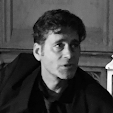It was ever thus.
“...the common denominator has been that each time, management won and the workers lost.”
Blue collar workers across the U.S. (and around the developed world) are placing ill-conceived bets on politicians of dubious intent — men and women who promise, often in natavist language, to “bring jobs back” and to protect workers from a (fictional) tidal wave of immigrants who are invading our shores with their nefarious plans to steal our jobs.
It sounds like support. It sounds like those politicians have workers’ backs.
In keeping with this naive belief, an estimated 80% of union workers at the Momentive plant in upstate NY voted in the current U.S. regime because Trump “doesn’t owe anybody.” That sounds like something union workers use to say about themselves.
Whether or not Trump “owes” anybody is for others (and perhaps the Russian secret service) to say. Yet the working class in the U.S. and elsewhere continues to believe that rich politicians have their interests at heart, despite a long history of just the opposite.
Slowly this lot begin to realize their situation: Their corporate masters don’t give a fig about workers. Nor does the Trump regime, stacked as it is with rich men and women.
The union president implores, “I would pray to God that Donald Trump would reconsider what he is doing and have a talk with some of these people...about what is going on here.”
But “these people” are billionaire shareholders of private equity firms that prize profits over people. They rule our land (as they have for decades) by squeezing what they can from workers and tossing away the remains. Enriching themselves while they force wages down, erode pensions and shift the burden of healthcare onto those who can least afford it.
One worker broods that ownership could have made “the correct moral decision.” But there’s no morality when it comes to corporations making money on the backs of their workers.

